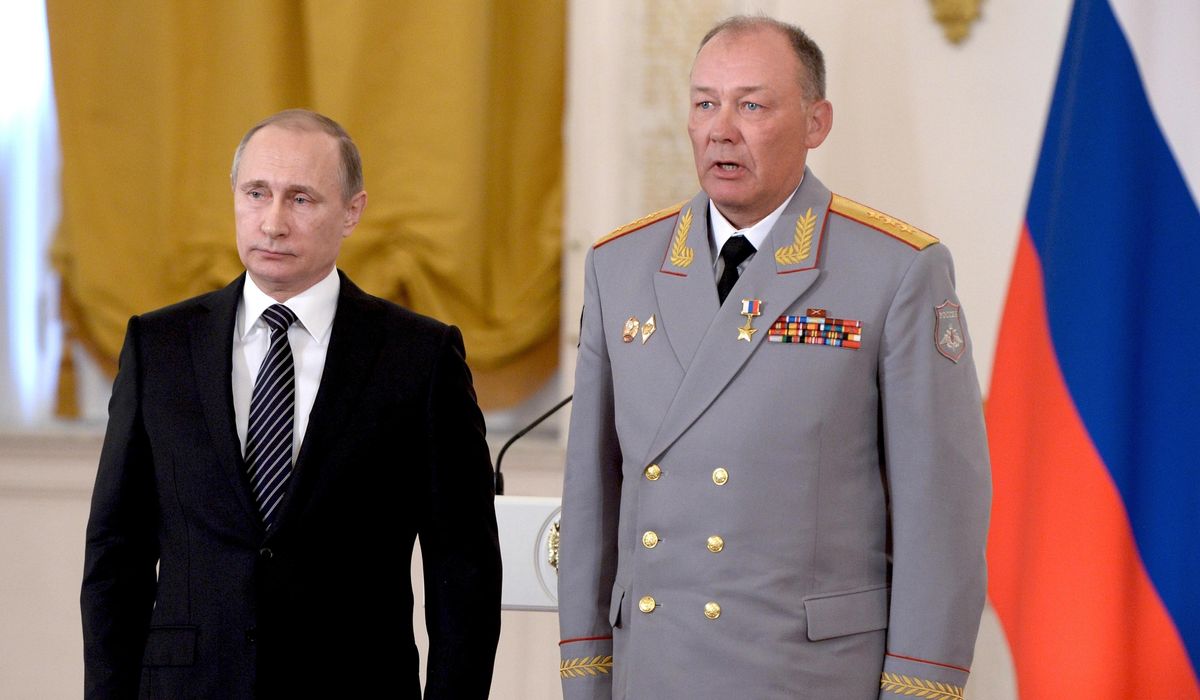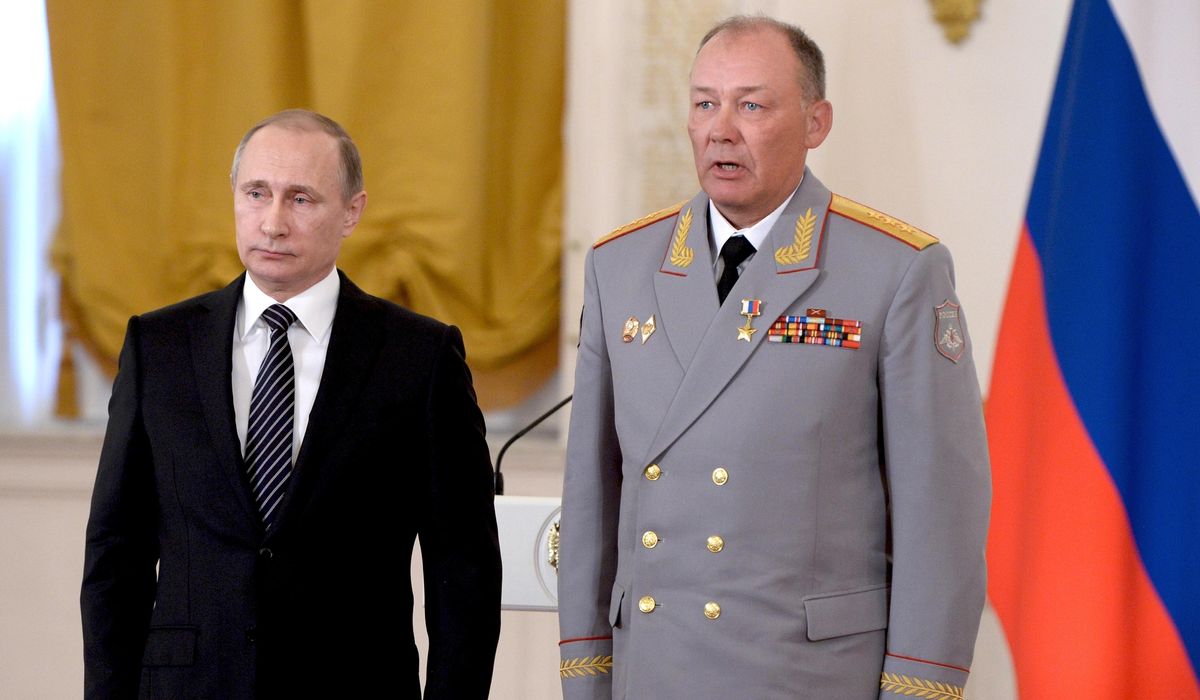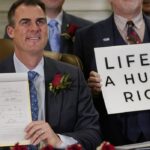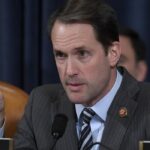
Russian President Vladimir Putin vowed Tuesday to press on with his military campaign in Ukraine, casting it as a “noble” mission that will end in victory and setting the stage for what is likely to be the bloodiest fighting so far as regrouping Russian troops mount a concentrated assault on the disputed Donbas region.
In his first public remarks in more than a week, during a visit to a Russian space center in the country’s far east, Mr. Putin slammed U.S. and allied economic sanctions on Moscow and said his government would resist all efforts to cut it out of global financial systems. The Russian leader also said cease-fire negotiations with Ukraine have hit a “dead end.”
Hours earlier, the U.S., Britain and other NATO nations publicly warned Russia against the use of chemical weapons. Unverified reports said Russian forces may have deployed such weapons in the southern Ukrainian port city of Mariupol, the scene of widespread destruction and civilian deaths. Biden administration officials said they could not confirm the use of chemical agents in Mariupol but investigations were underway.
SEE ALSO: Russian state TV pundits push for Trump-Gabbard ticket in 2024
The use of chemical weapons indicates that Mr. Putin and his military leaders feel growing pressure to deliver a clear victory after six weeks of Russian military missteps and embarrassing logistical failures. Analysts say Mr. Putin surely wants to see a decisive new direction by Victory Day, a Russian holiday on May 9 that marks the defeat of Nazi Germany in 1945.
Whatever his motivations, Mr. Putin left no doubt that he is prepared to forge ahead in Ukraine as Russian casualties mount and Western sanctions cripple his economy. During his visit to the Vostochny Cosmodrome in the company of Belarusian President Alexander Lukashenko, he virtually guaranteed that the mission would succeed.
“I don’t have any doubt at all,” he said. “Its goals are absolutely clear and noble. There is no doubt that the goals will be achieved.”
Mr. Putin said a “blitzkrieg” of economic sanctions from the U.S. and NATO has failed to cut off Moscow’s economy from the rest of the world.
“We are not going to seal ourselves off. In today’s world, it is completely impossible to fully isolate anyone and totally impossible [to isolate] such an enormous country like Russia. Therefore, we will work with those of our partners who want to cooperate,” he said, according to Russia’s state-run Tass news agency.
The comments were Mr. Putin’s first since Russian troops abandoned their campaign to capture the Ukrainian capital of Kyiv last week and repositioned for an all-out assault on the Donbas. Under a new commander, Russia is focusing its military might on Luhansk and Donetsk. The Kremlin recognizes the two territories as breakaway independent “republics,” but they officially remain parts of Ukraine.
Central to Russia’s ambitions in eastern Ukraine is Mariupol. Seizing the city would allow Moscow to link the Crimean Peninsula, which it forcibly annexed in 2014, with the Donbas, effectively slicing off a significant chunk of eastern Ukraine from the control of the central government in Kyiv.
More than 10,000 civilians have been killed in Mariupol, the city’s mayor said this week. Ukrainian military units said Tuesday that Russian drones dropped chemical weapons onto the city, though those reports could not be confirmed.
“We’re in direct conversation with partners to try to determine what actually has happened,” Secretary of State Antony Blinken told reporters.
Pentagon officials said the incident is under investigation.
Western governments have long feared that Mr. Putin would eventually resort to chemical weapons if the conventional campaign bogged down the way it has. Those fears grew after Moscow’s more traditional military tactics fell flat during the battle for Kyiv and other major cities in the north, where motivated Ukrainian forces put up an unexpectedly tough fight.
Target date
Less than a month before Russian Victory Day celebrations, foreign policy specialists said Mr. Putin is under increasing pressure to secure a win. At the same time, his goals are becoming murkier as Russian troops kill scores of civilians and raze entire cities that they claim to want to liberate.
“I think not having something by May 9 would be embarrassing for Putin, but I don’t think that it will be decisive. Whatever the situation becomes, they’ll deal with it, but [May 9] is a factor in their calculations,” Lawrence Freedman, a professor of war studies at King’s College London, said in an interview this week with Radio Free Europe/Radio Liberty.
“To me, there’s always been this question of ‘What does [Russia] actually think they’re going to do with this territory now?’” he said. “They’ve battered it and pummeled it, they’ve murdered [civilians] within it. Whatever assumptions they may have had about this being a Russophile part of Ukraine, it isn’t anymore.”
In a joint televised news conference with Mr. Lukashenko, Mr. Putin dismissed accusations by Western governments and human rights groups about Russian war crimes and other atrocities by invading forces against Ukrainian civilians. He said charges of Russian military abuses in the recently abandoned Kyiv suburb of Bucha were Ukrainian government disinformation. He compared the reports to what he said was a staged chemical attack blamed on Syrian ally Bashar Assad.
“It’s the same kind of fake in Bucha,” Mr. Putin said.
Russia has no guarantee of success in its Donbas campaign. Ukrainian forces will surely put up fierce resistance, just as they have done over the past six weeks.
In another indignity for the Kremlin, Ukrainian President Volodymyr Zelenskyy announced on his official Telegram social media account that officials had located and arrested Viktor Medvedchuk, head of the country’s biggest opposition party and the most prominent pro-Russian politician in the Ukrainian parliament. Mr. Medvedchuk, who had been in hiding since shortly after the Feb. 24 invasion, is personally close to Mr. Putin. The Russian president is the godfather of Mr. Medvedchuk’s daughter.
While making his online announcement, Mr. Zelneskyy posted a picture of an unsmiling Mr. Medvedchuk, handcuffed and clad in a camouflage uniform.
Top U.S. defense officials suggest that the Pentagon is open to providing artillery support that would enable the Ukrainian military to strike Russian forces at much greater distances than the Javelin anti-tank missiles and other weapons Kyiv has.
Deputy Secretary of Defense Kathleen Hicks said the U.S. is in a “continuing dialogue” with Ukraine about the types of firepower available from NATO countries.
“We will continue to look at the type of capabilities that the Ukrainians are asking for in terms of how to give them more range and distance,” Ms. Hick told reporters. “Are we looking at a wide range of systems in doing that? Yes. Is there a willingness to consider longer-range armaments? Yes.”
Because such a decision would require presidential approval, Ms. Hicks said, she wasn’t prepared to announce any developments on firepower.
• Mike Glenn contributed to this article, which is based in part on wire service reports.







